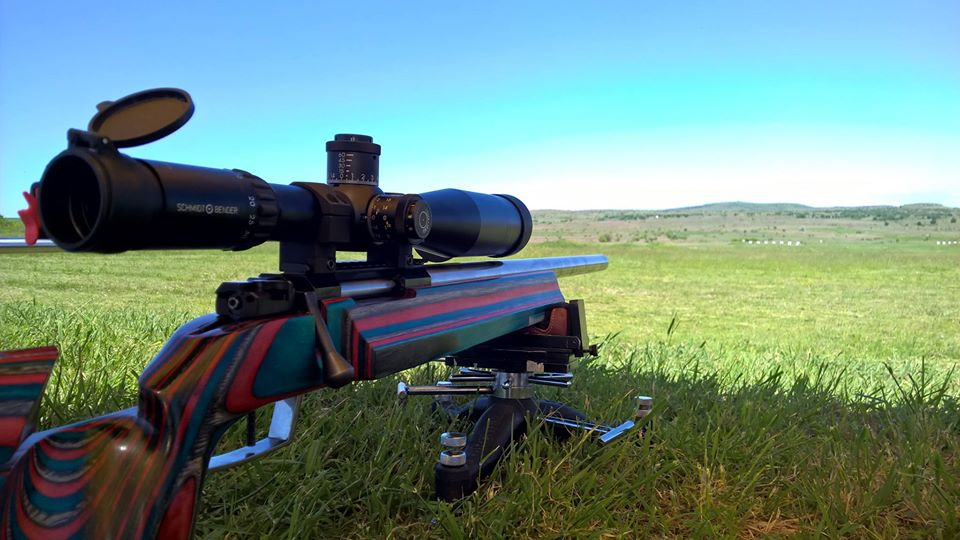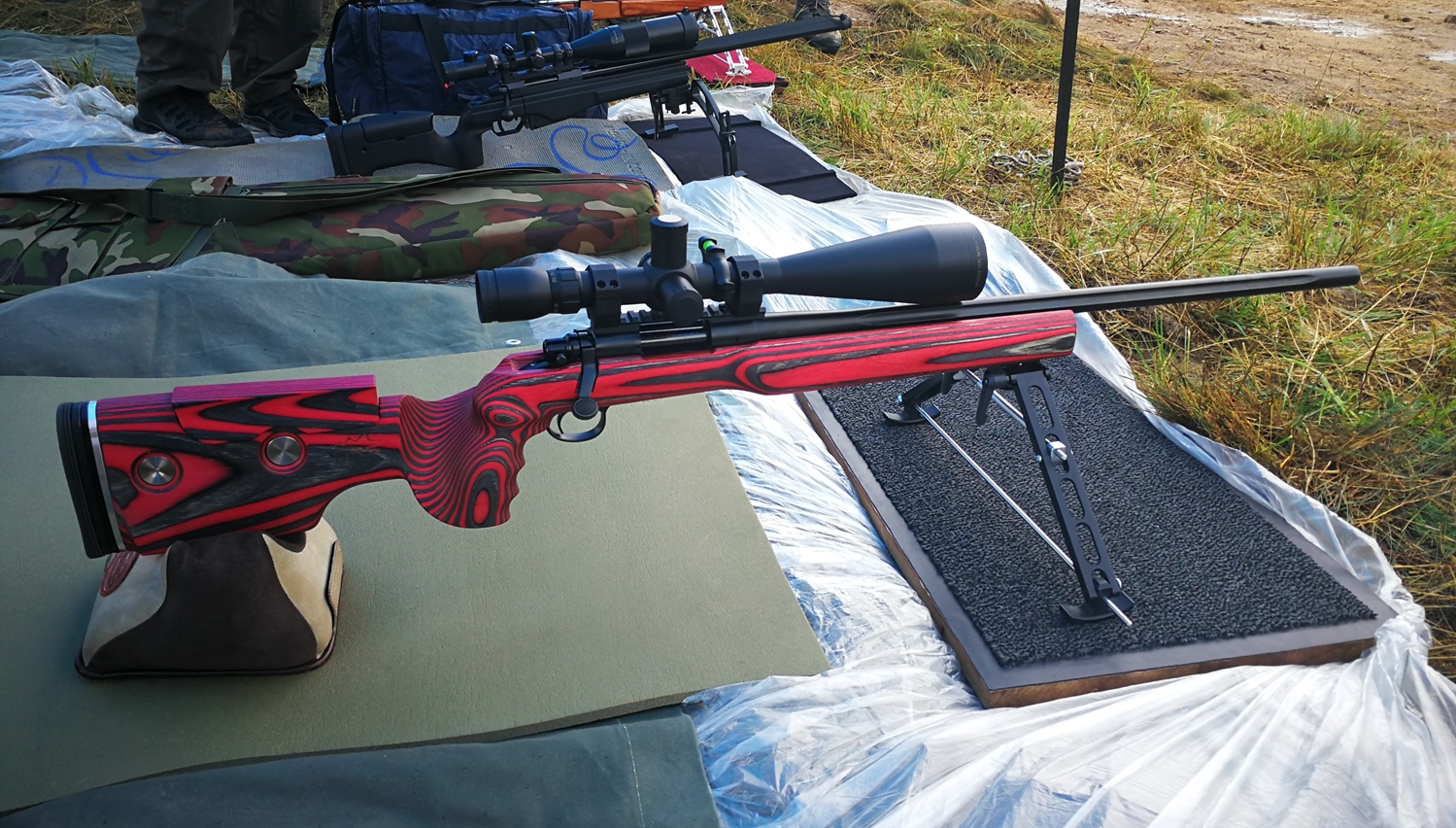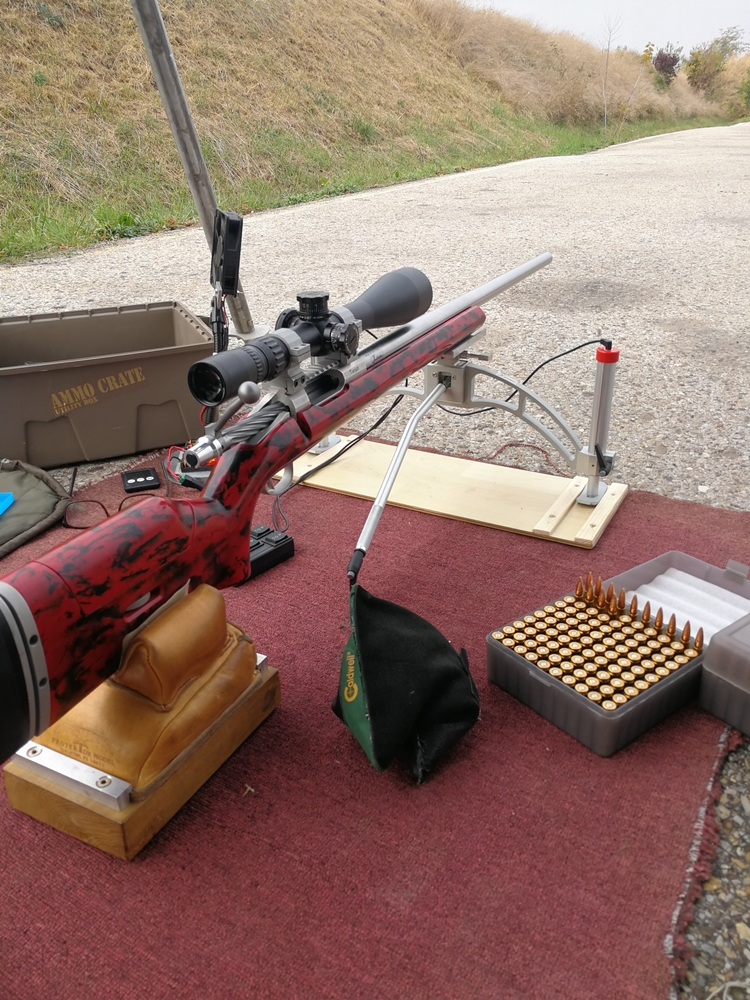Mounts
F-class Rifle Scopes
What is F-class shooting?
F-class shooters shoot at a target 300 to 1000 meters away using the prone position. The discipline is named after George 'Farky' Farquharson, a Canadian full-bore target rifle shooter who invented it. It is popular among European shooters as well. The European F-class competitions take place in Italy, Eastern Europe, Balkans, and elsewhere. The shooters use the same equipment, but there are some differences, namely in the targets, timings, and also the numbers of shots for the final result. The general goal of each F-class shooter is to shoot a tight group of 15–20 shots as close to the center of the target as possible.
Rifles used in F-class shooting
There are two types of F-class competitions – Open and Target. The rules below apply mostly to the European F-class competitions.
In the 'Open' discipline, calibers up to .35 are allowed. Competitors can use rifles that weigh up to 10 kg. It is allowed to shoot using a rest.
In the 'Target' discipline, the use of standard military calibers is permitted (.223 Rem., 5.56x45 mm NATO, .308 Win., 7.62x51 mm NATO, 8x57 IS, 7.62x54R). The maximum allowed mass of the rifle with all the accessories (bipod included) is 8.25 kg. The use of a bipod is allowed but the use of a rest is not.
In neither of the disciplines can the shooter use a muzzle brake.

General features
F-class is basically a long-range precision shooting discipline, and the rifle scopes in this category are designed for such a purpose. The turrets are either capped or not (both target and tactical turrets are popular). It is important to have fine clicks and great tracking capability, paired with a thin reticle in the second focal plane for minimum coverage of the target. A big maximum magnification (above 30x) is a must-have.
Light riflescopes for F-class rifles
One of the rules of the F-class has to do with the limitations of the mass. The competitors want to have as much of the allowed mass as possible in the rifle, meaning that a selection of a light rifle scope is crucial. A combination of a 30mm tube and an objective lens diameter of 52 mm tends to be the optimal choice. Also keeping the weight at a minimum is important, which is why many users opt for less than 800 grams of weight when choosing a rifle scope. The elevation range is limited because of the narrow tube. March was the first manufacturer to design such a rifle scope. Nightforce also followed soon after.

Tactical riflescopes
When looking for an F-class rifle scope, some shooters consider purchasing a tactical MIL/MIL or MOA/MOA rifle scope, but we do not recommend such a choice. Tactical rifle scopes are meant to hit any part of the target at any distance, whereas F-class rifle scopes are meant for making precise, tight shot groupings on a known distance with possible test shots. Namely, tactical rifle scopes are not suitable for F-class shooting because of:
• Thick reticle
• Bigger click value
• Low maximum magnification (for F-class shooting purposes)

Sightron Optics
Sightron is the only producer with a strong focus on manufacturing F-class rifle scopes. They are dominating the middle-class market with their SIII series. These rifle scopes are famous for their excellent tracking capability, great optical quality, and an affordable price. The majority of novice shooters go for a Sightron for these reasons. Sightron is successful in this field because they understand the needs of an F-class shooter. Therefore, no unneeded tactical features can be found in their rifle scopes designed for this competition.
Best F-class riflescopes
• March (many models)
• Nightforce (3 models only, but they are among the first producers of such rifle scopes)
• Kahles (one model)
• Schmidt & Bender (one model)
• Sightron (many models)
• Vortex (one model)
A short presentation of F-class Riflescopes is available here.
Video presentation